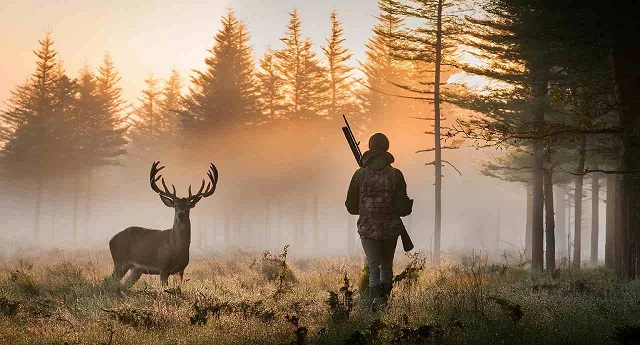Hunting is more than just a pastime; it’s a tradition, a survival skill, and, for many, a way to connect deeply with nature. Whether you’re a seasoned hunter eager to refine your techniques or a beginner taking your first steps into the field, honing your skills is an ongoing pursuit. This guide explores expert hunting tips that will help you become more efficient, ethical, and successful in your hunts.
From understanding your prey to utilizing advanced technology, we’ll cover essential strategies that every hunter should know.
Understanding Your Prey: Research and Observation
Becoming a great hunter begins with knowing your target. Understanding your prey’s habits, behavior, and environment directly impacts your success in the field.
Do Your Homework
Before heading out, research the specific animal you’re targeting. What are their feeding patterns? When and where are they most active? Many hunters find subscriptions to wildlife magazines or online resources invaluable for staying informed about migration patterns, breeding seasons, and ecological changes that affect wildlife behavior.
Scout the Terrain
Spend time observing the area where you plan to hunt. Look for signs of animal activity like tracks, droppings, and nesting spots. Consider trail cameras to monitor movement over time—this technology captures patterns you might not notice during a short scouting trip.
Blend into the Environment
Prey animals are highly attuned to their surroundings. Use camouflage to blend into the landscape and minimize scents that may alert them to your presence. Keep noise to a minimum and move against the wind whenever possible.
Mastering the Tools of the Trade: From Firearms to Bows
Skill with your equipment can mean the difference between a successful outing and an empty-handed return. Whether you prefer a rifle, shotgun, or bow, knowing your tools inside and out is critical.
Choosing the Right Equipment
Selecting the right gear for the type of hunting you’re doing is key. For those using two-blade broadheads on a bow, consider their unique benefits. Known for their simplicity and effectiveness, two-blade broadheads are ideal for delivering clean, humane shots. If you’re using a firearm, ensure it’s appropriately calibrated and suited for your target.
Practice Makes Perfect
Dedicate time to practicing with your weapon of choice. If you’re a bowhunter, visit an archery range and focus on mastering your shot placement. For firearm users, regular trips to a shooting range can help improve accuracy and comfort with your equipment.
Maintenance Matters
Keeping your tools in top condition is vital. Regularly clean your firearm or bow to prevent malfunctions.
The Importance of Stealth and Patience
Hunting tests two of a person’s greatest virtues—patience and discipline.
Move Slowly and Deliberately
Your movement should mimic the natural rhythms of the wilderness around you. Fast or jerky motions will draw attention from even the most unsuspecting prey.
Wait for the Perfect Moment
Knowing when to act requires patience. Rushing a shot rarely leads to success and may result in missed opportunities. Practice holding your position and observing until the target is in an ideal position for a clean and ethical shot.
Tips from the Experts: Insights from Seasoned Hunters
Learning from those who’ve spent years in the field is invaluable. Here are some insider tips:
- Read the Weather: Hunt during overcast days or in the early mornings and evenings when animals are most active.
- Practice Long Shots: Seasoned hunters often recommend practicing shooting from a greater distance to increase your effective range.
- Think Like Your Prey: If you were a deer during hunting season, where would you hide? Understanding their perspective helps you predict behavior.
Ethical Hunting Practices: Respecting Wildlife and Nature
Ethical hunting isn’t just about following local regulations—it’s about maintaining respect for nature and its inhabitants.
Always Follow Regulations
Ensure you have all necessary hunting permits and adhere to local laws regarding season dates and limits.
Use Humane Practices
Hunting tools are favored by many hunters for their reliability in delivering clean kills. Aim for a quick and ethical end to minimize suffering.
Leave No Trace
Respect the environment you’re in by minimizing your impact. Pack out all trash, avoid damaging vegetation, and take care to make responsible choices that ensure the area remains pristine for others.
The Role of Technology in Modern Hunting
Technology has transformed the hunting world, providing tools that increase both efficiency and precision.
Advanced Gear
Devices like GPS trackers, rangefinders, and weather prediction apps can give hunters a significant edge.
Smart Scouting
Trail cameras and wildlife monitoring software allow hunters to track activities remotely and plan accordingly.
Digital Communities
Consider joining online forums or apps geared toward hunters. These platforms often share insights, tips, and even hunt-friendly recipes!
Safety First: Essential Precautions for Every Outing
Hunting inherently involves risks. Prioritizing safety ensures your trips are enjoyable and incident-free.
Educate Yourself
Take a hunter safety course if you’re new to the sport. Even seasoned hunters benefit from annual refreshers on best practices.
First Aid and Emergency Prep
Carry a well-stocked first aid kit, and ensure you know the basics of wilderness survival in case of emergencies.
Tell Someone Your Plan
Always inform a family member or friend of your hunting location and expected time of return. If possible, hunt with someone else for added safety.
Wear Appropriate Gear
While camouflage is crucial, wear high-visibility safety colors during seasons when hunters populate the same areas. It helps ensure that you remain seen and safe.
Conclusion
Hunting trips are chances to learn, grow, and connect with nature. By focusing on improving one technique at a time, you can enhance your skills and enrich your experience. Embrace the journey of mastering hunting, while always respecting the land, wildlife, and tradition.


